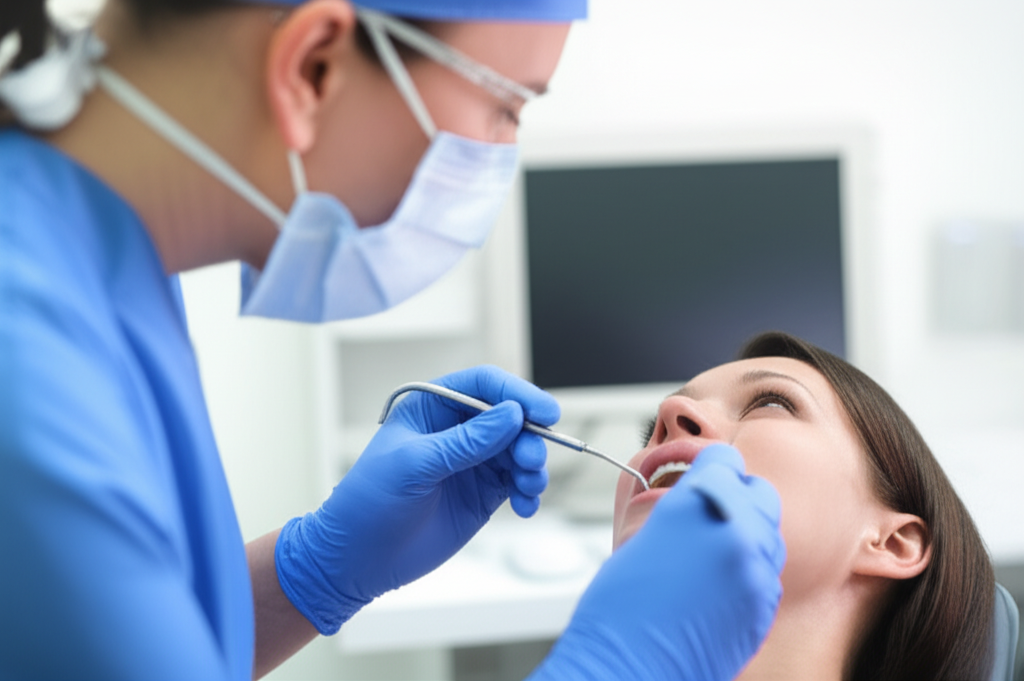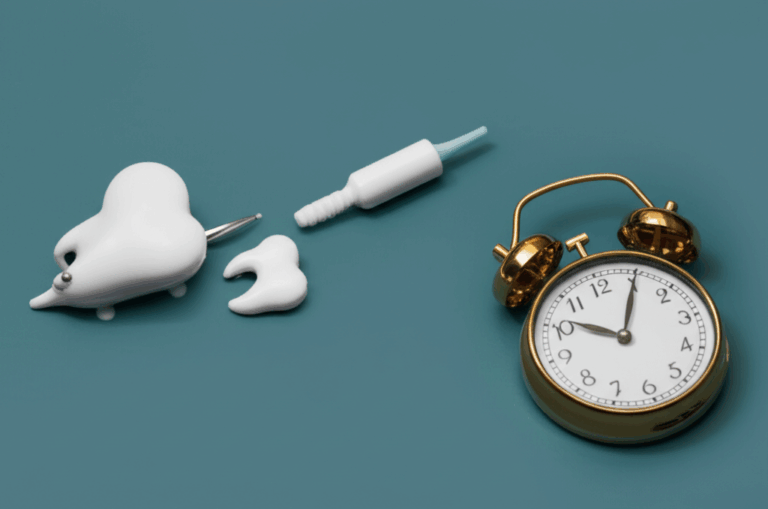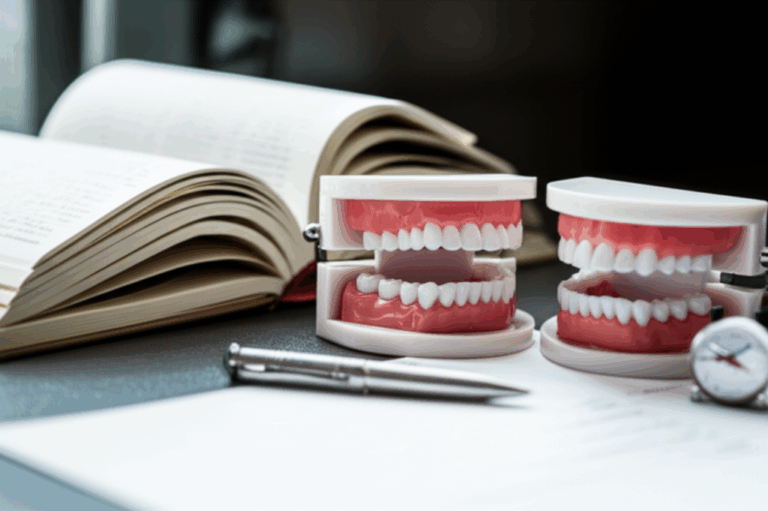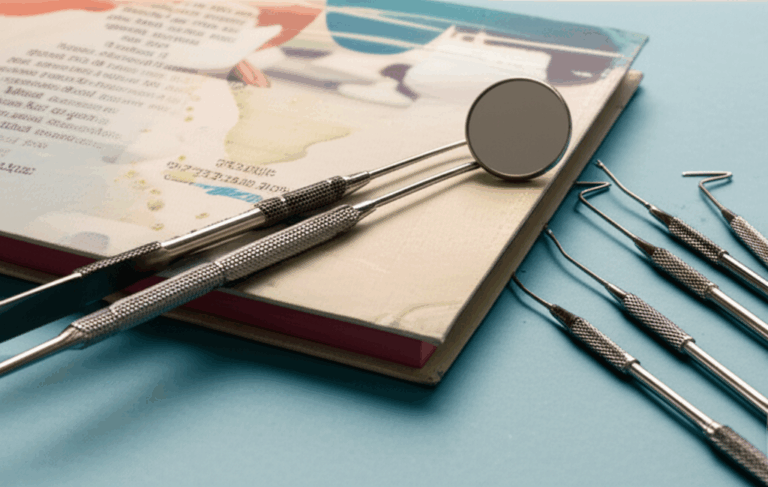
How to Become a Dentist in the Air Force: My Insider’s Guide
Table of Contents
- Unique Benefits & Opportunities
- Academic & Educational Requirements
- Military Eligibility Criteria
- Personal Qualities
- Health Professions Scholarship Program (HPSP)
- Uniformed Services University of the Health Sciences (USUHS)
- Direct Commissioning for Practicing Dentists
- Other Options: Loan Repayment, Reserve & Guard
- Officer Training School (OTS)
- First Assignments
- Career Progression & Specialties
- Clinical Practice
- Non-Clinical Duties
- Work-Life Balance
- Advantages
- Challenges
- How to Decide
- Recruiter Connection
- Preparing Documents & Interviews
- Deadlines & Application Tips
Why I Chose a Dental Career in the Air Force
Picking dentistry was my first big step. Going into the Air Force Dental Corps was my second—and honestly, it turned out to be a great move for both my work life and myself.
Unique Benefits & Opportunities
Here’s what really pulled me in and still keeps me excited about doing this job.
- No Debt for Dental School
When I was looking at options, the Health Professions Scholarship Program (HPSP) stood out the most. The Air Force paid all my dental school bills, even my books and stuff I needed, and gave me a monthly payment to help cover rent and food. I graduated without piles of student loans. If you want another way, the Uniformed Services University of the Health Sciences (USUHS) also pays for everything and you even get full officer pay, but you have to promise a few more years of work after.
- Good Pay and Allowances
Once I put on the Air Force uniform, I got steady pay and extra money for a place to live and for meals (that’s BAH and BAS). Some of my friends in private offices were still stressed about paying back their school loans while I was already getting my monthly check.
- Job Security and Good Benefits
You get health insurance, a great retirement plan, and steady chances to learn new things—honestly, most regular dentist jobs can’t match this.
- Chance to Learn and See the World
The Air Force wanted me to be not just a dentist but a leader. I got to work on all kinds of dental problems, from regular cleanings to tough injuries, sometimes in different parts of the world. Moving to places like Germany or Hawaii was just part of my job.
- Leadership and Serving Others
The best part for me is helping people who help our country. You get real chances to lead, even when you’re new, and you learn way more here than just fixing teeth.
Air Force dental clinics use some of the newest equipment, kind of like what you’d see at a big modern digital dental lab or a crown and bridge lab in private business.
What You Need: Prerequisites for Air Force Dental Service
When I first looked into joining, I kept thinking, “Do I have what it takes?” So here’s what you need—plain and simple—from my own experience and what people like Dr. Joe Dental shared with me.
Academic & Educational Requirements
First, you need school done.
- Bachelor’s Degree
I studied biology—not 100% needed, but it really helped since I had to take lots of science classes for dental school.
- Good Grades and DAT Scores
It’s a tough crowd. I worked hard for a high Dental Admission Test (DAT) score and kept my grades up.
- Dental School Accepted
You must get accepted into a real Doctor of Dental Surgery (DDS) or Doctor of Medicine in Dentistry (DMD) program. Check if your school is on the official Air Force list.
Military Eligibility Criteria
A few more boxes you must check:
- You Must Be a U.S. Citizen
No green cards or anything like that.
- Age Limits
Normally you have to get in by your early or maybe mid-40s. The exact rule changes sometimes, so double-check what’s current.
- Health and Medical Rules
You need to pass a physical and health check. If you’ve got any long-term sickness or big limits, it could stop you.
- Background Check
You’ll need a security clearance for your job. Don’t stress—it’s mostly about being honest and having a clean record.
Personal Qualities
It’s not just what’s on your college paper. They looked for:
- Can You Lead?
Did you ever run a club or team or do a lot of volunteering? Teamwork really matters in the Air Force.
- Service Attitude
They want to see you do good—don’t just talk about helping, actually show it.
- Flexible and Tough
Military life isn’t always smooth. My first move (PCS), I had to unpack everything, figure out new dental software, and meet a new group—all in one week.
Paths to Becoming an Air Force Dentist
There’s more than one road to putting on that Air Force dental badge. It depends on where you are in school or your job right now.
Health Professions Scholarship Program (HPSP)
This was my path, so I know it best.
How HPSP Works
- They paid every bit of my dental school tuition and fees.
- Every month I got about $2,600 to live on (the number does go up sometimes).
- They even covered my books, equipment, and lab fees.
How to Apply
First, get into a dental school. Then, talk to an Air Force Health Professions recruiter, fill out an application, go through interviews, and do a medical check.
Service Payback
You owe them one year of work for every year they paid for school, with at least a three-year promise. I did four years and owed four years back.
Uniformed Services University of the Health Sciences (USUHS)
I almost went this way. Dr. Clara Lee I know did. USUHS is different:
- You go to a dental school focused on the military from day one.
- You get officer pay and regular benefits while you study.
- The catch is you owe more time after—usually about seven years after school is done (and that doesn’t count internships/residencies).
It’s tough to get in—you really need good grades and a record of serving others.
Direct Commissioning for Practicing Dentists
If you already finished dental school and are a licensed dentist, you can look at direct commissioning.
- Who Can Apply: Already have a dental degree and a dentist license.
- Why This is Good: Don’t worry about school bills, and you come into the Air Force already as an officer (usually Captain, O-3).
- What’s Needed: Some work experience—and being ready to move if needed.
- How Long: Usually around three to four years.
Other Options: Loan Repayment, Reserve & Guard
- Loan Repayment Program (LRP)
If you’ve already got loans, the Air Force might pay up to $40,000 a year (up to about $120,000 in total), but spots are fewer.
- Reserve & Guard
If you want to keep a regular job too, you can serve part-time in the Reserve or Air Guard. You’ll still need to do military training and be ready if called.
My Journey: From Civilian to Commissioned Dental Officer
I’ll never forget when the HPSP said yes to me. That made everything real!
Here’s what happened next so you can see what it’s like.
Officer Training School (OTS)
Before I started working, I had to go through Officer Training School (OTS).
- How Long: About five weeks at Maxwell Air Force Base.
- What Happens: You learn how to be a leader, military customs, and get physically fit.
- Is It Tough?: it’s not military boot camp, but you do learn discipline, start your mornings with formation, and really start to “get” the Air Force.
Big plus: the friends I made there are still in my life, even after I moved to new bases.
First Assignments
Once OTS was done, I got to start real dentist work.
- Internship/Residency: A few of my classmates did a one-year advanced program (AEGD) before starting regular work—it’s great for gaining experience.
- First Base: I was posted in the US at first, caring for everything from teeth cleanings to real emergencies for other Airmen and their families.
Career Progression & Specialties
I started as a regular dentist with a Captain rank (O-3). If you do a good job, you can move up:
- Promotion: Every couple of years, you might become a Major (O-4), then a Lieutenant Colonel (O-5), and maybe more.
- Specialties:
They need more than general dentists, like:
– Oral and Maxillofacial Surgery
– Orthodontics
– Endodontics
– Periodontics
– Prosthodontics
– Pediatric Dentistry
You have to apply and spots are limited, but they open every year.
- Leadership: Later on, I managed other dentists, ran clinics, and even led humanitarian teams. There’s more to do than fixing teeth!
A Day in the Life: What Air Force Dentists Actually Do
People always ask, “What’s a normal day as an Air Force dentist?”
Honestly, no two days are quite alike, but here’s what usually happened for me.
Clinical Practice
- Patients: Most of my work was helping active-duty members. Readiness is super important—not just checkups and cleanings.
I also saw family members and sometimes retired military folks.
- Kinds of Cases: Because some clinics don’t have every kind of specialist, I did everything from fillings to root canals, extractions, and sometimes made temporary replacement teeth. Sometimes we sent things to outside labs for crowns or night guards, so our patients stayed ready for duty.
Non-Clinical Duties
- Admin and Training: Dentists also take turns doing paperwork, ordering supplies, and leading the team.
- Deployments and Humanitarian Work: Every few years, you might be deployed for a few months—or go with a mission team to help in poor areas or disasters.
Work-Life Balance
Moving to new bases (PCS) is a big part of life. You have to learn new systems and meet new teams.
My work hours were more steady than most private jobs—I wasn’t up all night on call. Plus, the Air Force is tight-knit, and my family always had help.
Should You Choose This Career? Pros and Cons
Military dentistry isn’t all sunshine. Here’s the real good and bad, so you know before you try it.
Advantages
- Money Security: If you go through HPSP or USUHS, you skip school loans. Pay and bonuses arrive right when you expect.
- Full Benefits: Healthcare, insurance, house money, and more—the Air Force gives a full package.
- Learning: Want to learn a specialty? If you qualify, they’ll pay to train you.
- Travel: Being sent to Germany, Japan, Hawaii? It happens. I loved seeing new places.
- Helping Others: The best reward is making a real difference.
Challenges
- Military Rules: You have to follow orders. Moves happen and affect your family, too.
- Deployments: Sometimes you have to pack up and go with short notice.
- Serving Time: You must finish every year you promised.
- Less Choice: Clinic rules and higher-ups decide what happens each day.
How to Decide
My advice:
- Talk to Air Force Dentists Now. Visit, ask honest questions, and get the real story.
- Check All Your Options. Know the full details before you sign up.
- Think About Your Priorities. No debt is awesome, but it comes with years of service. I was cool with that; you have to decide for you.
Next Steps: How to Start Your Application
Thinking about doing this? Here’s my best advice—the stuff I wish I had known at the start.
Recruiter Connection
Find a Health Professions Recruiter as soon as you can.
A good recruiter will guide you, answer your questions, and keep you from missing any dates.
Preparing Documents & Interviews
Get your school papers, DAT scores, references, and a personal statement ready.
Be ready for interviews—they want to see your heart, your leadership, and your real desire to help.
Deadlines & Application Tips
- HPSP takes rolling applications, but early is always better.
- Double-check all the dates.
- USUHS or specialties are hard to get into—expect tough interviews and lots of others trying too.
Frequently Asked Questions
What is the average service time?
For HPSP, it’s one year for every school year, with a minimum of three years. USUHS is at least seven years after finishing school.
Can I specialize in the Air Force?
Yes! You can do orthodontics, oral surgery, endodontics, periodontics, prosthodontics, pediatric dentistry, or public health. You have to be selected and do extra training.
Do Air Force dentists deploy?
Most of the time, yes—but not as often as other officers. Expect a deployment of 3-6 months every 2-4 years.
What’s the difference between HPSP and USUHS?
With HPSP, the Air Force covers school costs and gives you a stipend, you go to a regular dental school, then serve after. With USUHS, you’re in the military from day one, get officer pay, but owe more years later.
What rank do Air Force dentists start at?
Most begin as a Captain (O-3).
Conclusion: Serve Your Country, Build Your Dental Future
If you want to finish dental school with no debt, love adventure, and want to help your country, you should really think about joining the Air Force Dental Corps. For me, it’s a career that gave me more than I expected—skills, friends, and the chance to do real good.
Military dentistry isn’t for everyone, but for some, it’s more than just a job—it’s a true calling. If you’re ready, the Air Force is looking for you.
Reviewed and checked for facts by Dr. Joe Dental, DDS, US Air Force Dental Corps (Retired)
If you want to see how new dental tech helps patients today, check out a digital dental lab, or read the dental practical guide for more dental tips!








